"Sorry", what next?

"You, say sorry to your sister! ...You apologize to your brother!"
Have parents ever asked their children to apologize to each other after an argument? Can this asked "I'm sorry" be considered a sincere apology?
The "Me Too" movement in the United States in 2017 gave victims of sexual assault and harassment a platform to speak out. Among those accused, a senator resigned, a famous Hollywood producer was imprisoned, and many familiar faces on television were fired one by one. Some of them said it was consensual, some said they were sorry for making you feel uncomfortable, and some said nothing at all. Is this an apology?
Intentionally or unintentionally, people will always offend and offend others, causing tangible and intangible injuries that can be deep or shallow. How should we deal with it afterward so that we can appease the wronged person’s grievances and anger and begin to repair the relationship? Saying "I'm sorry" may sound as light as a feather, but if it is sincere and you sincerely correct it, it can be as heavy as Mount Tai.
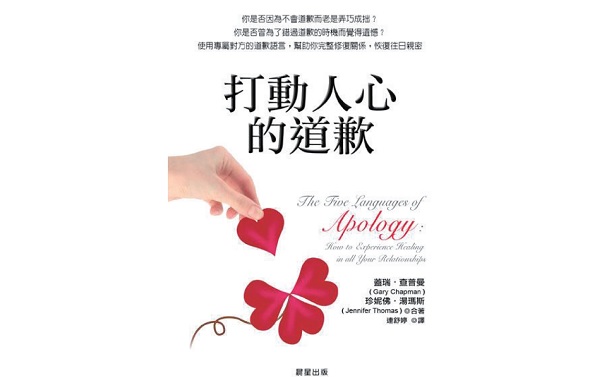
▲"An Apology That Touches People's Hearts" points out that people have different apology languages, and only by using the right language can it touch people's hearts.
"Sorry", how to say
暢銷書《五種愛的語言》(The Five Love Languages)的作者蓋瑞‧查普曼(Gary Chapman),與珍妮佛‧湯瑪斯(Jennifer Thomas)合著《打動人心的道歉》(The Five Languages of Apology,以下簡稱《道歉》)1 一書,開宗明義指出人在意是非對錯,源於心理學所稱的「良知」,或是神學觀念裡的「神聖形像」。
When interpersonal harm occurs, the injured party will feel angry and unfair, the conscience of the party who caused the harm will be blamed, and the original harmonious relationship between the two parties will be destroyed. Moreover, when people make moral mistakes, they also offend God, and there is a gap in the intimate fellowship between God and people. We need to restore our relationship with people and God, regain a clean conscience, and find a harmonious relationship. Those who have been hurt must apologize, and those who are hurt must be forgiven.
Just as love has different languages, apology also has different expressions; the way you say "I'm sorry" can vary from person to person, and the acceptance of "I'm sorry" will also vary from person to person.
Based on years of observations in counseling, two years of dedicated research, and analysis of questionnaire results, the book "Apology" summarizes five "languages of apology":
1. Express regret - "I'm sorry";
2. Take responsibility - "I was wrong";
3. Compensation for mistakes - "What should I do to make up for and correct it";
4. Sincerely repent - "I will try not to make the same mistake again";
5. Seek forgiveness - "Please forgive me."
If you say the right apology, the other person will feel sincere regret. The book "Apology" mentions that common couples come to seek marriage counseling. One party says: "As long as he apologizes," but the other party says: "I said I'm sorry!" The answer is: "You never admitted that you wrong."
Some wives also said that whenever their husband did something wrong, he would give her a bouquet of flowers, but he never said "I'm sorry" so that she would not feel "apologised." Later, the wife even asked the flower shop delivery person to take the flowers to the wife next door. At least someone could appreciate them and they would not be thrown directly into the trash can.
The book summarizes the results of the questionnaire survey and found that 75% couples have different apology languages; among them, there is actually 15%. The apology language that one party is most willing to use is the least acceptable way of apology for the other party. Therefore, in addition to knowing your own "native language" of apology, you must also promote understanding of the language of apology among family members and even colleagues in the workplace, and learn to speak the other party's language of apology.
If after expressing your apology and remorse, you are still not accepted by the other party, perhaps you should ask again: "What should I say or do to eliminate the injustice in your heart and get forgiveness?" Finding the right apology language will not only help Communication is more effective and it expresses a sincere apology.
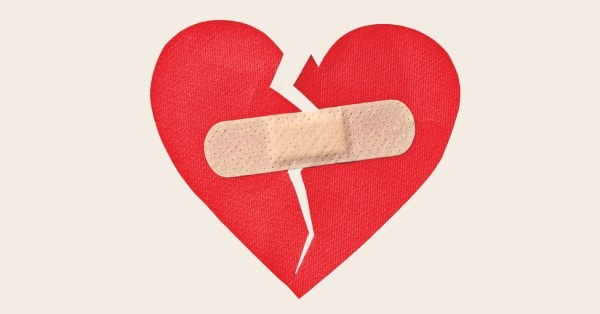
▲ Saying "I'm sorry" sincerely is the first step to repair a relationship.
"I'm sorry" is speaking to the heart
Can you speak the apology language if you understand it? Two senior coaching authors of "Apology" devote an entire chapter to telling readers, "Apologizing is a choice."
Maybe it’s the family environment, or maybe it’s the cultural pattern. After making a mistake, many people, even if they feel regretful, are willing to make up for their mistakes and seek forgiveness, but they just can’t say “I’m sorry” and refuse to admit “I was wrong.” . Sometimes, even if the fault is not yours, you choose to respond to harm with harm, making the cracks in the relationship deeper and more painful.
In the 1970 poignant love movie "Love Story", didn't it also say "Love doesn't require apology"? And the stalemate in many interpersonal relationships is that neither party is willing to admit their mistake first, and they are all waiting for the other party to apologize first. Time has passed, and you may have forgotten what the original dispute was about. What is more important than the family, friends, and physical relationships in Christ that we originally enjoyed compared with the fairness and justice we consider ourselves to be? Does the responsibility for causing harm really only lie with the other party? Life is short. Instead of regretting the lost time and relationships after the Cold War, are you and I willing to apologize for our mistakes and take the first step to repair the relationship for the sake of love?
「愛與衝突和睦事工」的創辦人劉哲沛、王蘭馨牧師夫婦曾說:「在衝突或緊張的關係中,要改變的不是問題、關係,而是衝突中的『人』。人要改變,心要先改變。」2 認錯、道歉,便是示弱,顯得自己沒價值嗎?認錯、道歉,豈非需要更大的勇氣?之後得到饒恕、修補關係,才能恢復無愧的良心,在神與人的面前活得堂堂正正。
Nowadays, litigation has become a way for many people to resolve conflicts, hoping that the court's decision will bring justice to them. In the American judicial system, the defendant is considered innocent until the court determines guilt (criminal) or liability (civil). Therefore, he must apologize to the other party and admit his mistake, which is equivalent to admitting defeat.
One of the patients of surgeon Michael Woods had an unexpected emergency during an appendix resection operation, resulting in massive bleeding. Although he was properly treated afterwards, the recovery process was not as smooth as expected, and he even needed to be admitted to the intensive care unit. The patient complained of discomfort, but Dr. Wu ignored him. Unexpectedly, a few months later I received a lawsuit notice for medical negligence.
In court, the patient's cause of action gave Dr. Wu a heads-up - it was not the mistake during the operation or the excessive physical pain she suffered afterwards, but the fact that the doctor did not take her injuries seriously. Michael Wu finally won the lawsuit, but his heart was still heavy and he couldn't let go of his guilt.
Dr. Wu later conducted detailed research and found that when medical staff face patients with honesty, respect, and care after causing negligence, most of them will accept an apology, reduce lawsuits, and be willing to accept reasonable financial compensation. Pay subsequent medical expenses.
在他所著《醫治的言語:道歉在醫療界的力量》(Healing Words: The Power of Apology in Medicine,中文暫譯)3 一書中,伍醫師語重心長地提醒同業:「道歉是一種醫治。更準確地說,是關係的醫治……。」他觀察到,當醫師真誠道歉,對病人的心說話,病人較有可能以饒恕反饋,兩方關係上的信任度便得以修復。
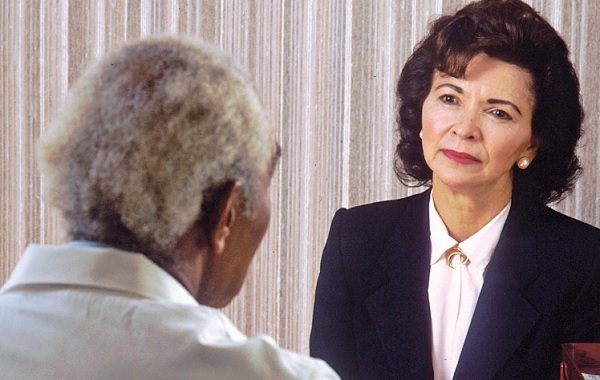
▲Doctors make mistakes too. However, when a physician sincerely apologizes to a patient, the patient is more likely to respond with forgiveness and regain trust in the physician.
"I'm sorry" is said from the bottom of my heart
An apology goes beyond saying the right words; acknowledging a mistake goes beyond mitigating lawsuits. God’s words remind us: “Sorrow according to God’s will produces repentance without regret, which leads to salvation.” (Refer to 2 Corinthians 7:10)
The words and deeds of public figures, whether good or bad, right or wrong, are amplified and exaggerated in media reports. Once a scandal, scandal, or bad behavior is exposed, at a press conference, under the flashing lights, how many people are willing to admit their mistakes, express regret, and ask the injured family members and society to give them a chance to make a new comeback?
2019年美國爆發大學錄取的賄賂醜聞,一些有錢、有名的父母親花上大筆金錢,在子女學業和運動成績上動手腳,「買」得知名學府的錄取通知。檢察官起訴後,黑名單上的許多父母選擇走過整個審判過程,而知名女演員賀莉絲(Felicity Huffman)竟決定認罪,並且寫了一封悔罪的信給法官。4
In order to let children with acting talents get the chance to be screened, Hollis used deception to "help" her daughter with learning disabilities get a higher entrance exam score. Hollis explained in the letter that she actually knew this was wrong: "I broke the law, deceived the education system, betrayed my daughter, and let my family down. ... I will spend the rest of my life with shame and regret." "The letter also stated that although this experience was painful, she was still grateful for the opportunity to change, and hoped that she would face life honestly from now on, and work hard to repair her relationship with her daughter, family, and the general public.
Hollis' letter included admitting her mistakes, expressing regret, being willing to change, and seeking to rebuild and reconcile the relationship. This apology is not an excuse for one's behavior, but an expression of sincere repentance. She said "I'm sorry" to the judge, her daughter, and society, and she said it from the bottom of her heart.
The judge did grant a lenient sentence, with a two-week sentence, 300 hours of community service, and a $30,000 fine. While other parents involved in the case are still waiting for trial, Hollis has been released early due to good behavior and has begun to rebuild relationships and rebuild her life.
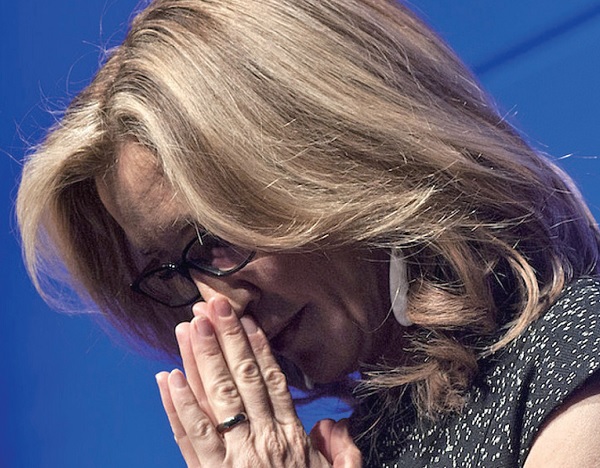
▲After breaking the law, the well-known actress Hollis wrote to the judge to repent and apologize to her family and society.
(Image Source:https://images.app.goo.gl/8UMeusBc9vabEqNX8)
"I'm sorry" needs to be responded with forgiveness.
How much courage and determination does it take to sincerely apologize and sincerely make amends? However, many times, the unwillingness to apologize is because they cannot afford to admit their mistakes and cannot see the way out after apologizing.
The Old Testament records that the first two kings of Israel chose different ways to respond to their mistakes.
Saul did not wait for Samuel and offered the sacrifice himself. The prophet rebuked him, but Saul responded with words such as "You are late", "The soldiers will leave me" and so on. Afterwards, he failed to follow God's instructions to destroy all the cattle and sheep of the Amalekites. When confronted by Samuel, Saul shied away from his responsibility and argued that "the people should sacrifice the best livestock to God." The prophet painfully conveyed Jehovah God’s rebuke: “Does the Lord delight in burnt offerings and peace offerings as much as in people obeying His voice?” Even though Saul admitted his mistake, he was more concerned about not embarrassing himself in front of the elders and the people. (Refer to 1 Samuel Chapters 13 and 15)
On the other hand, after the prophet Nathan denounced David for committing adultery and murder, the king's first words were: "I have sinned against God." (Refer to 2 Samuel Chapter 12) He expressed his repentance in poetry and earnestly sought God's help. Forgiveness, and the assurance that God does not despise a broken and contrite heart.
David, who was "after God's own heart", knew and believed that this fair and righteous God was also the Lord of mercy and grace. When he sincerely repented, he would find a way to renew: "Oh, please create in me a pure heart. , restore a right spirit within me. Do not cast me away from your presence; do not withdraw your Holy Spirit from me. Give me the joy of salvation and sustain me.” (Psalm) 51:10-12)
After apologizing and acknowledging your mistake, it is very likely that the relationships, reputation, achievements, status, money and other capital accumulated over the years will be wasted. But what could be a higher price than losing an intimate relationship with God? What higher compensation is there than a clean heart before God?
Besides, how can people not make mistakes? God’s promise drives those who hurt others and offend God to choose to sincerely apologize and seek God’s forgiveness and people’s forgiveness: “If we confess our sins, God is faithful and just and will forgive our sins. Cleanse us from all unrighteousness” (1 John 1:9).
With this certainty, will followers of Christ also be more willing to forgive? How can we, who have received such great forgiveness from God, withhold any mercy for those who sincerely apologize and sincerely repent? And when you and I choose to treat penitents with mercy and kindness and create a culture of forgiveness, will more people be willing to apologize, repent, and seek to rebuild harmonious relationships?
Who hurt Jesus more seriously, Judas, who betrayed Jesus, or Peter, who denied Jesus? Both of them clearly knew how big of a mistake they had made, and both expressed deep regret. Then what?
One chooses to stay in regret and loses the opportunity to witness the Resurrected Lord; the other clings to hope, meets the Resurrected Lord, affirms his love for Jesus, and is forgiven and accepted.
Saying "I'm sorry" is the beginning of admitting your mistakes and repenting, the first step to repairing a relationship, and it is also an opportunity to meet the resurrected Lord. The Lord, who has overcome the power of sin and death, is already waiting on the other side of "I'm sorry" to accept you with forgiveness so that you and I can "regain the joy of salvation."
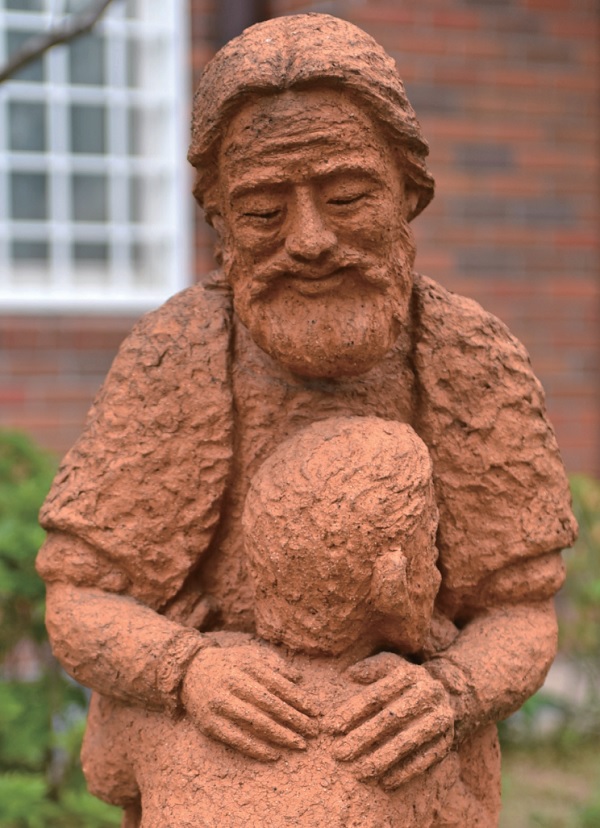
▲A word of "I'm sorry" is the beginning of admitting one's mistakes and repenting, the first step to repairing a relationship, and an opportunity to meet the resurrected Lord.
1. The Five Languages of Apology, by Gary Chapman and Jennifer Thomas, Northfield Publishing, 2006. (Chinese translation: "A Touching Apology", translated by Lian Shuting, Morning Star, Taipei.)
2. 欲更多了解「愛與衝突」和睦事工,請參閱本刊37期關係單元文章〈Receive the gospel and live out love〉).
3. Healing Words: The Power of Apology in Medicine, by Michael S. Woods, Doctors In Touch, 2004.
4. Hollis’ letter to the judge:https://www.marketwatch.com/story/i-keep-asking-myself-why-did-i-do-this-felicity-huffman-writes-to-the-judge-ahead-of-sentencing-calls-motherhood-bewildering-2019-09-13?mod=article_inline.
Linda Pang, writer, Sunday school teacher, loves to study and share God’s words. Editor and guest writer of this magazine.
